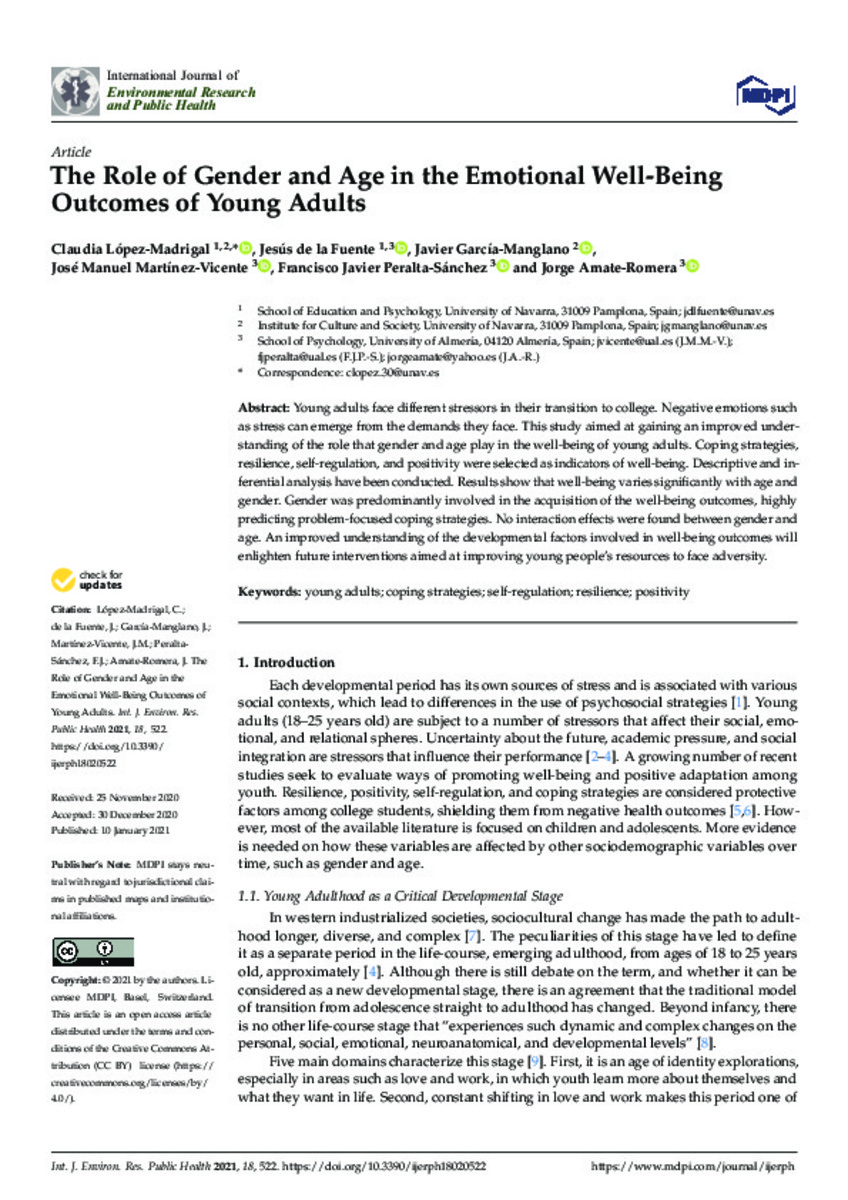The role of gender and age in the emotional well-being outcomes of young adults
Palabras clave :
Young adults
Coping strategies
Self-regulation
Resilience
Positivity
Medicine
Fecha de publicación :
2021
Nota editorial :
his is an open access article distributed under the Creative Commons Attribution License which permits unrestricted use, distribution, and reproduction in any medium, provided the original work is properly cited
Cita:
Claudia López-Madrigal, Jesús de la Fuente, Javier García-Manglano, José Manuel Martínez-Vicente, Francisco Javier Peralta-Sánchez, & Jorge Amate-Romera. (2021). The Role of Gender and Age in the Emotional Well-Being Outcomes of Young Adults. International Journal of Environmental Research and Public Health, 18(522), 522
Aparece en las colecciones:
Estadísticas e impacto
0 citas en

0 citas en

Los ítems de Dadun están protegidos por copyright, con todos los derechos reservados, a menos que se indique lo contrario.











